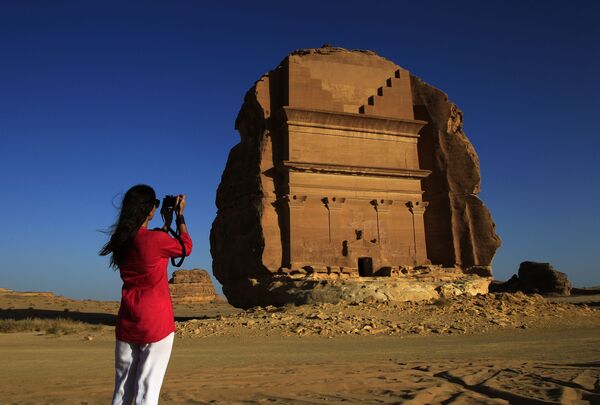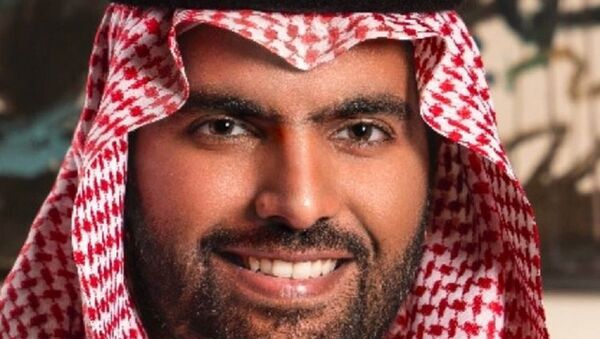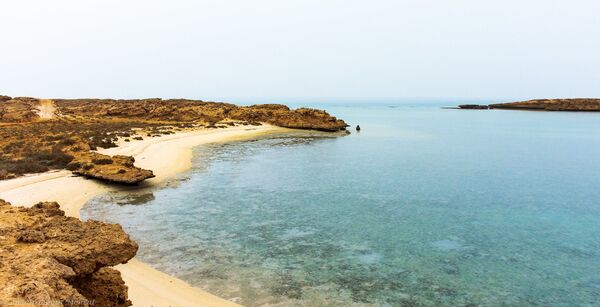The country's first ever Minister of Culture Prince Badr bin Abdullah bin Farhan Al Saud has spoken in an interview about Riyadh's plans for cultural research, as well as about the country's first cinemas and female artists.
Sputnik: The "Vision 2030" plan was announced 2 years ago and is coming to life now. How is the cultural environment going to change in Saudi Arabia and what is the main outcome?
Prince Badr bin Abdullah bin Farhan Al Saud: Saudi Arabia is a land of great cultural treasures, historic sites, talented artists, musicians and creative types. We are very proud of our cultural inheritance and as part of the new vision for our country culture will receive a massive boost. We have a new ministry in place, with new leadership and a new team, and we are driving forward policies and plans to put art and culture at the center of people’s lives. The reason we’re doing this is to help enrich the lives of all our citizens, and to build bridges of understanding between cultures.
Sputnik: Your country is a place of great interest for many archeologists. There were negotiations with the director of the Hermitage museum Mikhail Piotrovsky about the participation of Russian specialists. At what stage the
negotiations are now?
Badr bin Abdullah bin Farhan Al Saud: Archaeology is extremely important to humanity – it helps us understand who we are and where we came from. In Saudi Arabia we’re lucky because we have so many well-preserved sites thanks to our climate. Just having a look our “keyhole” tombs and or our UNESCO recognised rock art represents some of the earliest forms of expression known to man, and Nabatean sites such as Madain Saleh we are the basis for trading empires and the development of our language. We have over 40 active digs underway and more than 10,000 unexcavated sites. We are tremendously keen for collaboration with international institutions and we recognise the potential for partnerships with our friends in Russia and elsewhere.
Sputnik: Have there been any extraordinary archeological finds in recent years? Where it can be seen now?
Badr bin Abdullah bin Farhan Al Saud: For example, Dr Soline Marion de Bros from the French National Centre for Scientific Research has a team working to uncover the past of the Arabian Peninsula, they have been carrying out archaeological excavations on Farasan Island since 2017. So far, the team has revealed 30 sites including very early settlements, animal remains including deer, cows, horses and turtles, and various finds including ancient Arabic inscriptions, and sites dating back to the Roman Empire. I would recommend interested visitors to make a bee-line to any one of our five UNESCO World Heritage sites.
Sputnik: Speaking about the changes that are currently taking place in Saudi Arabia, the phrase “museum boom” often pronounced. What museums are planned to build in the near future?
Badr bin Abdullah bin Farhan Al Saud: We are very proud of our National Museum, as well as the many excellent national and regional museums across our country. We are now adding new museums, to be announced in due course, and we have a full commitment to developing the museums sector with a new Museums body which we are setting up.
Sputnik: Saudi Arabia presented its National Pavilion at the Venice Biennale this year it is given to a female curator and a female artist. How is contemporary art developing in the country?
Badr bin Abdullah bin Farhan Al Saud: We have always had a strong tradition of visual arts and many world - recognised artists. We were delighted to be represented at this year’s Venice Biennale by Zahra Al-Ghamdi a superb talent whose work After Illusion captivated audiences. Contemporary art is very popular and we have several galleries and institutions emerging to show contemporary work and help people learn. For example, the King Abdulaziz Center for World Culture (also known as Ithra), in hahran, Saudi Arabia, developed by Saudi Aramco and inaugurated by King Salman bin Abdulaziz on 1 December 2017 incorporates a museum, children museum, library, cinema, theatre, and exhibition halls.

Sputnik: St. Petersburg International Economic Forum started at the beginning of June, there was a cultural program as well. Could you please say a few words about the participants?
Badr bin Abdullah bin Farhan Al Saud: We had two very talented female artists represented at this year’s forum
- Lulwah Al - Homoud and Daniah Al-Saleh. Their dramatic work explores the fascinating intersection between art and Artificial Intelligence. It was great to see our artists represented at this important global event.

Sputnik: I would like to talk about the development of cinemas. A year ago, the first cinema was officially opened in the country, but there is information that by 2030 there should be 300 of them. Could you please elaborate a little about?
Badr bin Abdullah bin Farhan Al Saud: Going to the cinema is an enjoyable leisure activity that our people should be able to enjoy, and which we are working hard to make happen. And yes, of course, people should be able to enjoy Saudi-made films as well as those from Hollywood, Bollywood and elsewhere. There are many talented Saudi filmakers, I’d recommend anybody interested in Saudi film to have a look at their work.
Sputnik: How cultural reforms are perceived in the country, how ready is society to study and adopt other cultural traditions, and how can one preserve the unique national culture?
Badr bin Abdullah bin Farhan Al Saud: This is an important question and one which we have thought long and hard about. Our aim is to unleash new and inspiring forms of expression, at the same time as protecting and cherishing our cultural traditions. Where we bring in other traditions it is for mutual benefit and understanding – that is what cultural exchange is all about.




